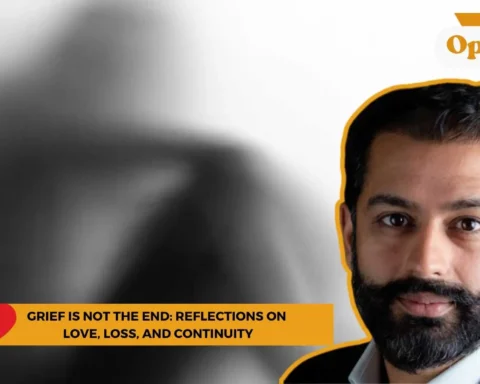Whew, you have had a long day of work, checking multiple items off of your to-do list.
Someone comes up to you and compliments you, saying something like, “Wow, you’re so productive; I love your work ethic!”.
But is it always a good thing to be so productive? Sure, it’s suitable for your work life, but is it good for you?
In the current world, productivity is viewed as the ideal goal, with people constantly hustling.
We’re bombarded with hacks to be more productive and assist us in squeezing every drop of efficiency from within us.
Social media pages are often filled with posts glorifying the hustle culture, and being productive is seen as a sort of measure of our worth.
But as we relentlessly chase productivity, we should probably take a minute to slow down and wonder: what’s the price we’re paying for this?
The Beginning of the Productivity Culture
Although the concept of productivity is not new, its massive spread is relatively recent.
Previously, productivity was solely linked to economic yield in the context of industrial labor. The more efficiently you can produce goods, the more profitable you will be.
However, throughout the years, this concept has seeped into our personal lives. Now, productivity is not just a thing for industrialists; it’s even a part of a little child’s life. It’s not just attached to work; it’s about how efficiently we handle every aspect of our lives, be it our health, relationships, hobbies, and even our free time.
Social media has played a crucial role in amplifying productivity culture. Influencers and successful entrepreneurs often have pages dedicated to sharing their intricately planned schedules, with healthy early morning workouts, meticulously thought-out meal planning, continuous meetings, and an apparently perfect work-life balance.

While it may be motivating, this constant exposure often develops a pressure to catch up, leading us to equate our value with our productivity levels.
Productivity Culture and Its Influence on Mental Health
The obsession with productivity can have a severe impact on our mental health.
Multiple research has suggested that constantly aiming for high efficiency can lead to burnout, anxiety, depression, and other mental health issues. Especially when productivity becomes a criterion for measuring our self-worth, any shortcoming can cause massive self-criticism and guilt.
Burnout is particularly a growing concern. The WHO has identified burnout as an occupational phenomenon which can be distinguished by emotional exhaustion, cynicism, and decreased professional performance. Moreover, while burnout is often talked about in work-related settings, it is now being observed in other facets of life where the pressure to be productive is high.
Additionally, a heightened focus on productivity can often cause us to neglect self-care. Sleep, rest, and recreational activities are usually ignored in the hopes of being more efficient.
We often feel guilty for taking a break or spending time on activities that don’t immediately give us a payoff, even though these are quite essential for preserving our mental and physical health.
This or That?
In our chase towards productivity, we often get confused about how to spend our time in the best possible way.
In the current world, there is a wide array of options to choose from when deciding how to spend our time. While this can be encouraging, it can also lead to a significant amount of confusion.
Should we spend our time reading a book, trying new skills, or exercising?
The continuous requirement to select how to be the most productive can lead to decision fatigue, decreasing the quality of our decisions over time. This fatigue can bring in a feeling of dissatisfaction and a sense that we are never doing enough, no matter how much we achieve.

Productivity Culture: The Downfall of Leisure
The constant hustle we strive for has also led to a massive devaluation of leisure.
In the current culture that prioritizes efficiency and output, leisure activities that do not yield an instant and clear, productive outcome are often perceived as a waste of time.
For example, hobbies are now selected with the need for self-improvement rather than for enjoyment. Reading is not just for pleasure; it’s about boosting our knowledge. Exercise is not just for endorphins and fun; it’s all about staying healthy and optimizing our bodies for peak performance; even sleep is usually discussed in terms of how it can help us become more productive rather than its main purpose of health and well-being.
This toxic mindset significantly devalues leisure and ultimately decreases our capacity for enjoyment.
When we measure everything we do based on its productive output, we simply lose the ability to just be present at the moment and enjoy life for what it is.
Restructuring the Productivity Culture
We’re paying a hefty price for the apparently idealistic productivity culture, draining every bit of happiness from within us just to be efficient.
The very first step is to redefine our perspective on success and productivity. Rather than keeping our eyes on what we can achieve, we could instead shift our focus to include our well-being, relationships, and personal contentment as the key factors of success.
This also means identifying leisure and relaxation as being necessary in our everyday lives.
Another important step is learning to accept the concept of ‘enough’. In a world that’s always nudging us to do more, we must set a limit and stop. It can be challenging to know when we’ve done enough, but once you get it, it is quite liberating.
Finally, it is essential to incorporate the power of rest in our lives. Rest is not a break from productivity; it’s a crucial component of it.
Incorporating regular periods of rest in our lives in whichever form – be it sleep, meditation, or simply doing nothing, can significantly increase our overall productivity in the long run.
Ultimately, productivity is merely a tool that can assist us in achieving our goals, not something to measure our worth with. By dropping the constant chase towards efficiency, we can build a space for happiness, creativity, and well-being, which, in the end, are the most essential things to live a meaningful life.
Would you like to share some more interesting insights into our current discussion on productivity culture?? We’d love to hear them! Share your thoughts and ideas in the comments below to get the conversation flowing, or feel free to reach out to us at larra@globalindiannetwork.com.










